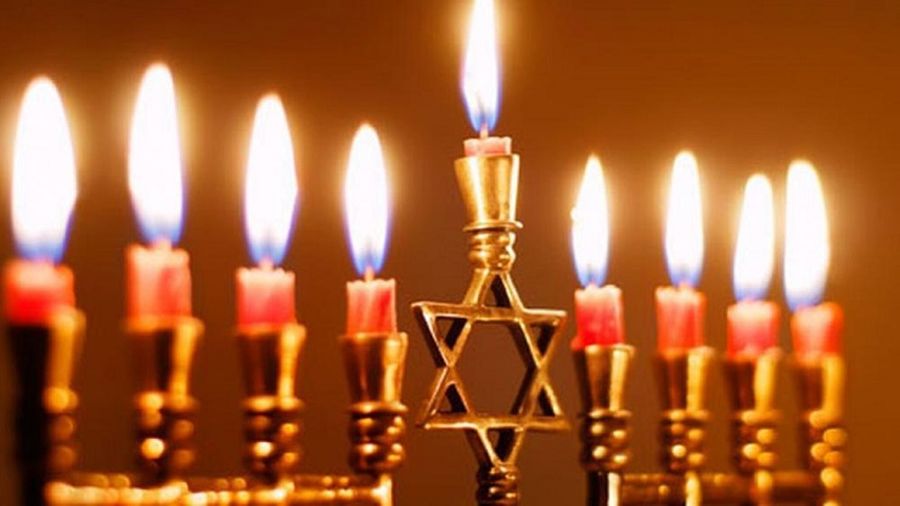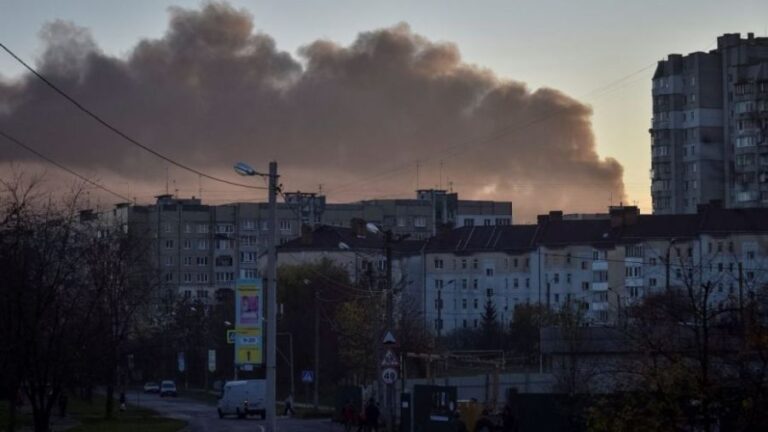How does Hanukkah in Israel End the Year 2022?
In recent days, Israel has been the focus of widespread attention.
This was not only due to the celebration by Jews of perhaps one of their most interesting festivals, Hanukkah, which is often translated as “sanctification” or “renewal.” Russian President Vladimir Putin was among those who congratulated the leader of Israel’s Likud party, Benjamin Netanyahu, and all Israelis on the Jewish holiday the other day.
The year 2022, which is drawing to a close, has been marked by many very important events relating to Israel. Above all, it is the return to power in the country of Benjamin Netanyahu’s Likud party and the swearing in of a new government by the Knesset on December 29. However, even before this confirmation, domestic political struggle and criticism in Israel had escalated, in particular from the leader of the opposition party Our Home, Avigdor Lieberman, who criticized the new government’s coalition deals with ultra-Orthodox parties, which, he said, will cost Israel 20 billion annually. Liberman, a nationalist who has been Minister of Finance for the past 18 months, warned that Netanyahu’s new government will lead to a collapse of the economy.
This criticism was joined by the academic and legal elite of Israel, who demanded that Netanyahu abandon the nationalist and discriminatory laws prescribed in the Likud coalition accords – and especially the restrictions on the competence of the High Court of Justice (Bagatz). At the same time, they stressed that these laws strike at the foundations on which the state was built, a blow to the liberal-democratic framework which has allowed, among other things, Israel’s sciences to flourish.
The political confrontation in the country has also led to continued settler attacks on the Al-Aqsa Mosque and the burning of cars and homes of Palestinian families. Hamas spokesperson Abdel Latif Al-Qanou said, referring to a report by the Department of Islamic Endowments on a visit by dozens of “settlers to the al-Aqsa Mosque” (Temple Mount), “Palestinians are facing a fascist government that is declaring war on our people, and this requires us to respond by stepping up the fight against the occupation, … to fight the rising terrorism against our people and their holy places.” At the same time, Hamas stressed that “the new Zionist government consists of the most extreme religious and nationalist right in the history of the entity.”
Against this background, the Palestinian Foreign Ministry called on the international community to pressure Israel with sanctions to “defend the principle of two states for two peoples” and take action against the occupation in the West Bank. The Palestinian Authority has warned that the new government’s policies will lead to an “explosion” and alerted the international community to prepare for a worst-case scenario. Referring to the agreements reached by the new Israeli government with the country’s radicals, the Palestinian Foreign Minister warns of the dangers of implementing them with regard to the conflict and the entire region, especially the consequences of the changing status quo of Jerusalem and its holy sites, the main one being the blessed Al-Aqsa Mosque. A ministry statement said the agreements would allow for the “annexation” of the West Bank and the legalization of settler outposts, as well as giving future internal security minister Itamar Ben-Gvir a “license to promote the death penalty.” In this regard, the Palestinian daily Al-Quds warns that the new government’s policies will “blow up an already explosive situation and turn the region and the world into a volcano that could erupt at any moment, threatening global peace and security.”
Clearly concerned that the current US president is more worried about policies towards sexual minorities than the Palestinians, the leader of Israel’s ruling party Likud, Benjamin Netanyahu, said his government will not allow LGBT rights to be violated. Netanyahu thus stood up for LGBT rights to his coalition colleagues, in particular in response to a claim by his party colleague in the Knesset, Orit Struk, that health workers should have the right to refuse treatment to LGBT people. In doing so, Netanyahu also responded to criticism of an amendment to the law banning discrimination in the receipt of services and the purchase of goods, whereby one of the points in the coalition agreement between the Likud and the Tziyonut Datit (Religious Zionism) party provides that private companies will be able to refuse to provide services on religious grounds.
Despite the political chaos caused by the collapse of the government, which caused Israelis to hold recent elections for the fifth time in less than four years, Israel is doing very well economically, according to international experts, with exports approaching a record level of more than USD 160 billion in 2022. This fact enabled The Economist to rank Israel as the fourth most efficient economy in the Organization for Economic Cooperation and Development (OECD) in 2022.
Following the implementation of the new Free Trade Agreement between Israel and South Korea, Korean Air has resumed direct Seoul-Tel Aviv flights. Israel’s new Ambassador to Ankara, Irit Lillian, recently presented her letter of credentials to Turkish President Recep Tayyip Erdoğan, while Şakir Özkan Torunlar was appointed Turkish Ambassador to Tel Aviv, completing the full restoration of diplomatic relations between the countries after a four-year hiatus.
The Israeli military also reported successes in the final days of the year, in particular the opening of the new Israel CyberCampus school, which will be headed by Yigal Unna, former head of the National Cyber Directorate and a high-ranking Shabak official, and will be chaired by former world chess champion Garry Kasparov, considered a leading expert on cybersecurity. The school will be taught by experts from the IDF’s renowned Cyber Unit 8200.
The Israeli military has drawn attention in recent days with raids and bombings in Syria, as well as in neighboring Lebanon, where, for example, Israeli Air Force fighter jets violated airspace and flew at reduced altitude over southern population centers, breaking the sound barrier in the sky and causing several strong air pops.
But the IDF representatives did not limit themselves to these actions and to demonstrating their readiness to launch another strike against the Shia groups near Israel’s borders. The IDF Chief of Staff, Lieutenant General Aviv Kochavi, said Israel conducts on average at least one operation against Iran every week somewhere in the Middle East. He said the Israel Defense Forces were now ready to strike Iranian nuclear sites any day if such an order is given by the country’s leadership. This undoubtedly exacerbates an already volatile situation in the region, especially with the new Israeli government coming to power, described by some observers as very hawkish.
Under these circumstances, and with the Hanukkah celebrations that have just taken place, the author would like to wish Israel not only renewal, but also tranquility.







